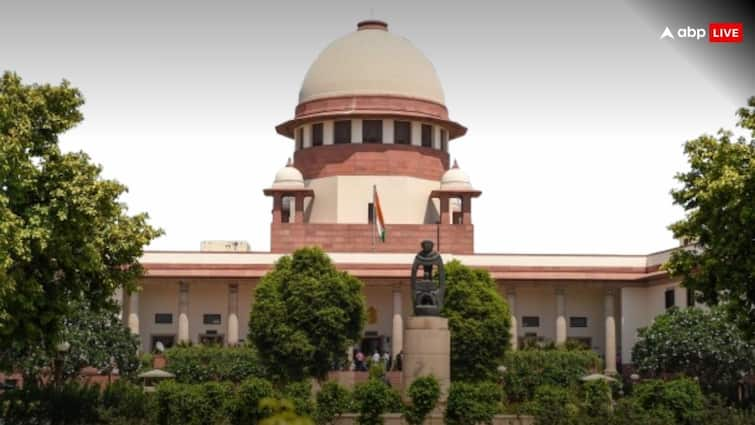Plea against waqf law: Jamaat-e-Islami Hind has filed a petition before the Supreme Court of India (Supreme Court), which has challenged the constitutional validity of the Waqf (Amendment) Act, 2025. Jamaat Vice President Professor Salim Engineer, Maulana Shafi Madni and Inam Ur Rehman as well as other senior officials of Jamaat have raised serious concern over the new law in the Union of India (defendant).
The petition states that these amendments violate fundamental rights and fragment the religious, charitable and community-oriented character of Waqfs in the country. The petition has demanded that the amendments have been unconstitutional by violating Articles 14, 15, 16, 25, 26 and 300 (A) of the Indian Constitution.
Major episodes raised in the petition:
1. Violation of fundamental rights
The amended Act brings changes in the definition and structure of Waqf and imposes an improper restriction on who can create Waqf and how it can be managed. For example, now, according to the law, the donor must prove that he has followed Islam for at least five years – it is a vague and arbitrary expectation, which is not based on Islamic law and can deprive women, converted people and many real donors from using their religious freedom. This is directly a violation of Articles 25 and 15, which guarantee security against religious freedom and discrimination.
2. Waqf board erosion
The new law dissolves the elected Waqf boards and appoints officials appointed by the government in their place, including officers who do not have the expected knowledge of non-Muslim and Islamic jurisdiction. It basically violates the right to manage its religious institutions of the provided community of Article 26. In addition, the amendment has removed the need to be a Muslim CEO of the board, which will weaken communal representation.
3. Inappropriate acquisition of Waqf properties
Section 3D of the Act has been introduced to declare all the Waqf properties void under a hurry and arbitrary ASI protected monuments, irrespective of their historical religious significance. This provision basically canceled the ancient monument and archaeological site related to Waqf properties and Section 6 of the Archaeological Site, 1958, as well as a discriminatory structure by which only Muslim religious monuments have taken away their religious form and management from Muslim religious monuments. In addition, this law enables the encroachers to claim adverse occupation of the Waqf land by applying with the retrospective impact under the Border Act, 1963, which threatens more damage to Muslim charitable property.
4. Failure of community counseling
Despite the broad and intensive effective nature of amendments, they were passed in a hurry, and postponing procedural rules and changes such as sections 3D and 3E were added to the last time during parliamentary proceedings. The important thing is that in addition to other people of the community, the officials of Jamaat had raised serious objections before the Joint Parliamentary Committee, ignored in the final Act. This gross neglect is a violation of democratic principles and the spirit of participating governance.
Additional legal argument:
The Act invalid the concept of Waqf by the user – which is a judicial accepted principle, which has also been confirmed in the Ram Janmabhoomi -Babri Masjid decision – which ends the historical Waqf without written deeds or documents. This considers government revenue records (records of rights) as a decisive evidence of ownership, while the judicial example believes that such entries do not determine ownership, especially in the case of Waqf properties.
Citing the decisions of Lal Shah Baba Dargah, Sheikh Yusuf Chawla and Ramjas Foundation, the argument has been argued that the evaluation of the Dharma should be done in terms of community use and historical continuity, not only on the basis of government records.
Jamaat-e-Islami Hind insists that Waqf is an integral part of Islamic faith and Indian heritage which is deeply associated with charity, education and social welfare. Any attempt to weaken its religious and community character is not only unconstitutional, but also morally unjust. The Jamaat calls for civil society, legal experts and committed citizens to pluralism and justice to raise their voice against arbitrarily eliminating Waqf security and stands in solidarity with this constitutional challenge.
Also read: Violence in Bengal again against Waqf law, police vehicles burnt in South 24 Parganas district

